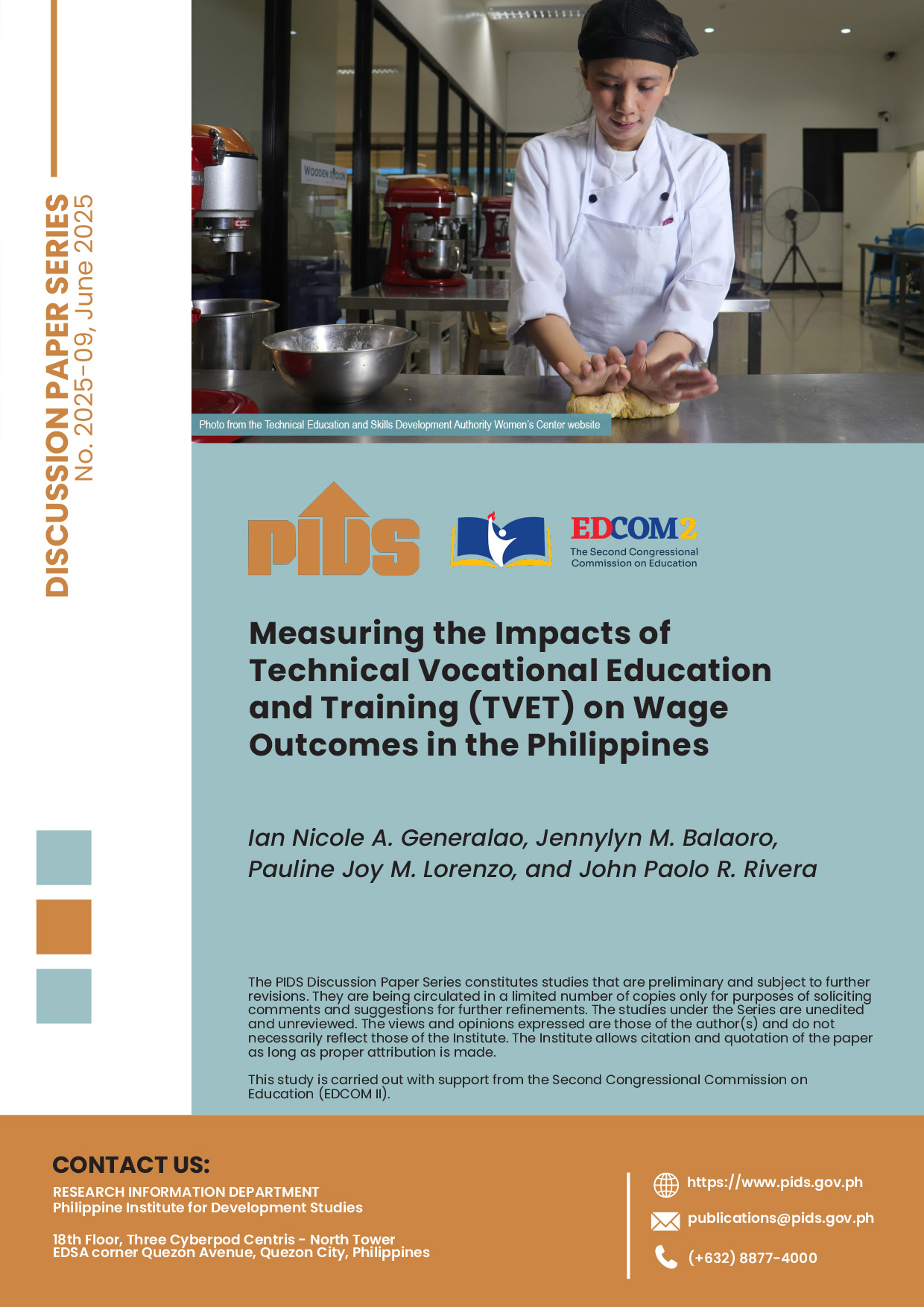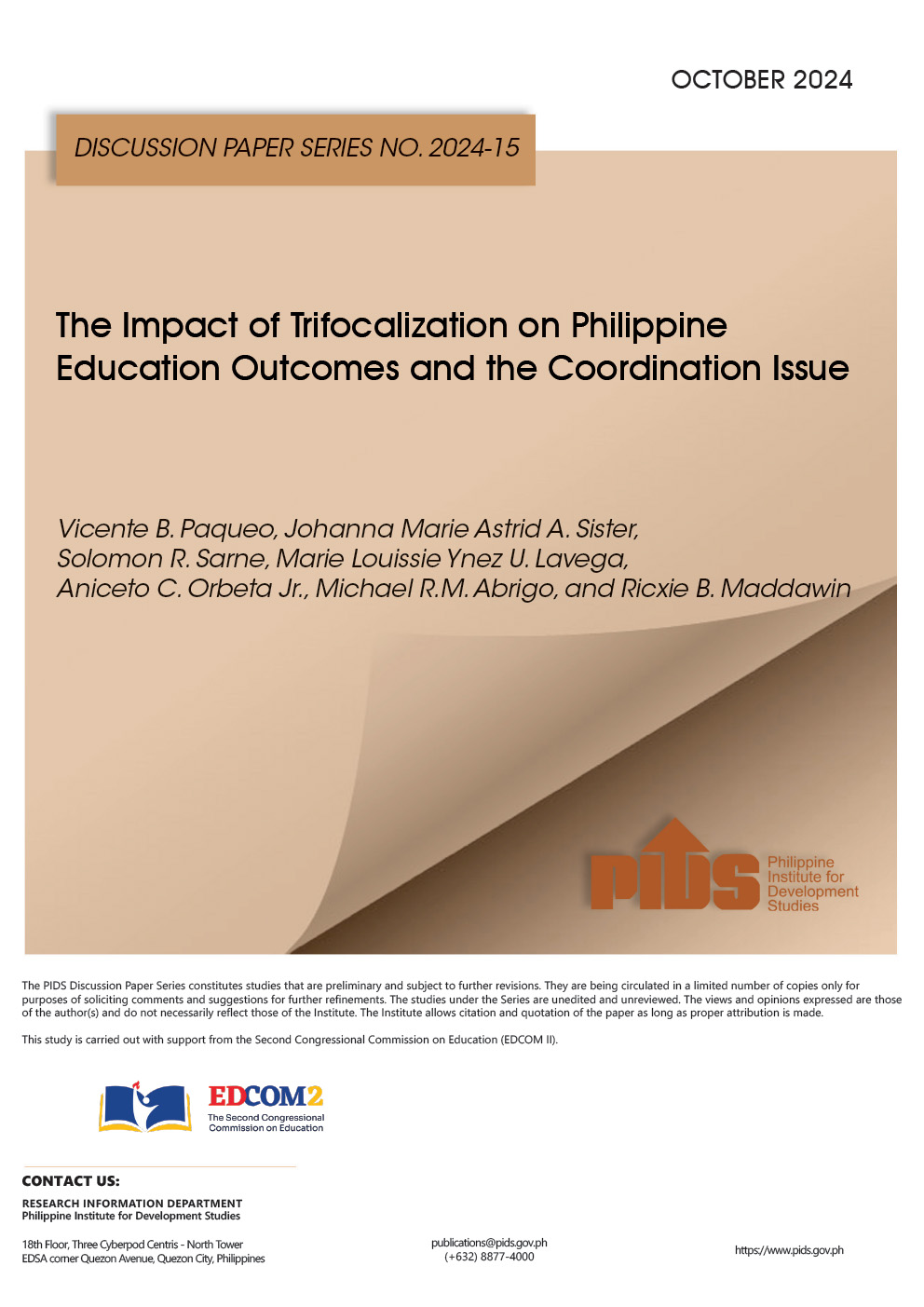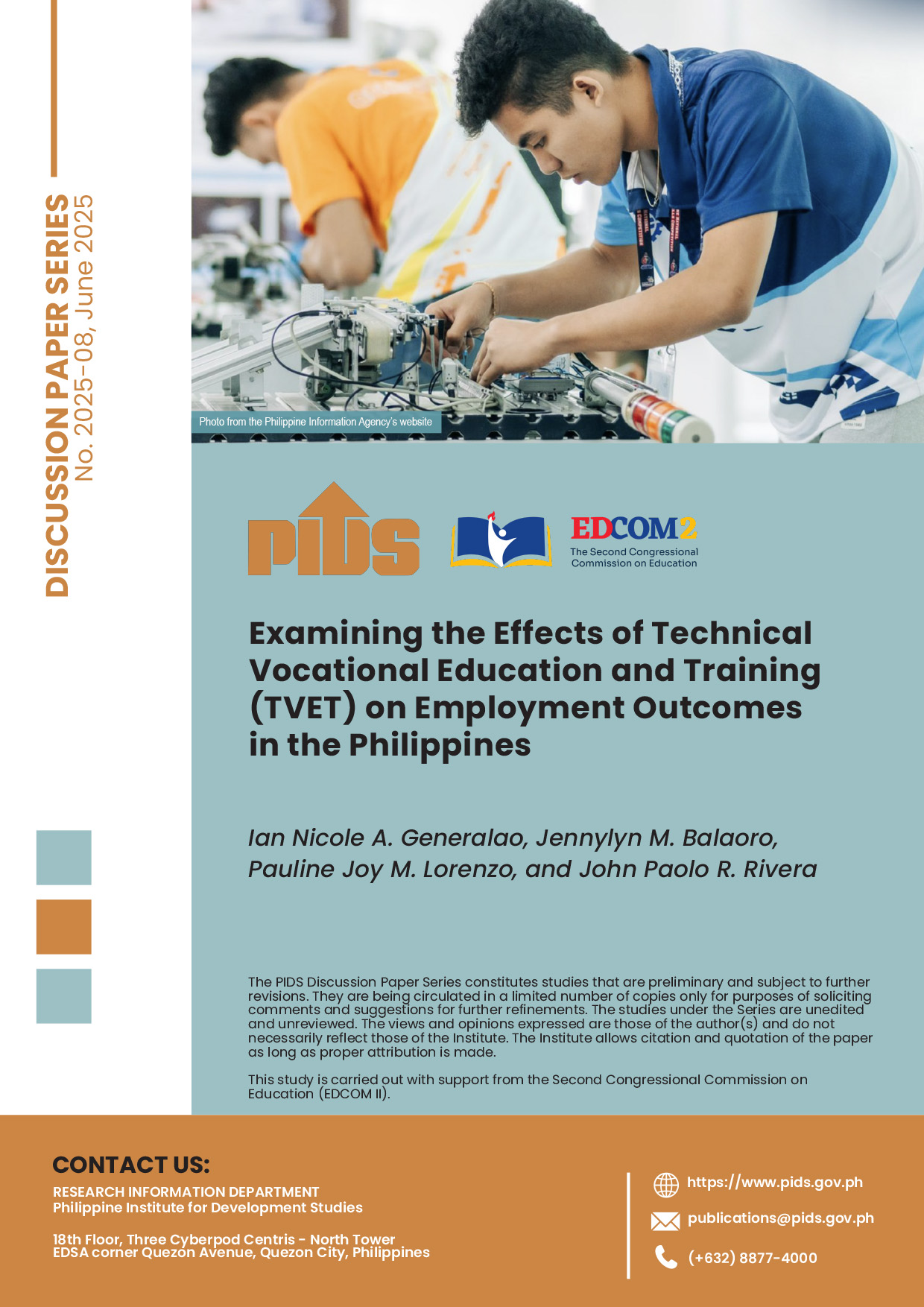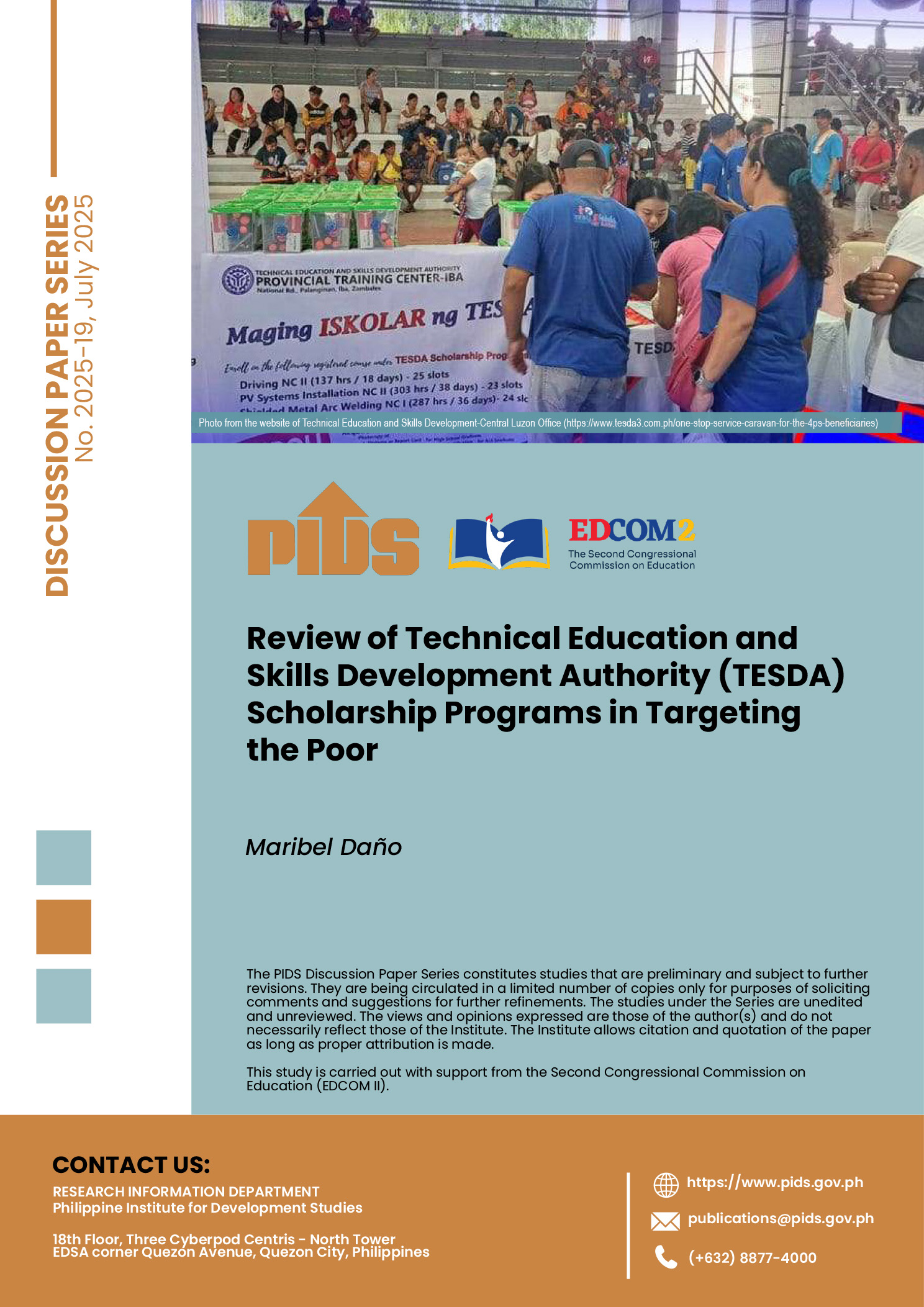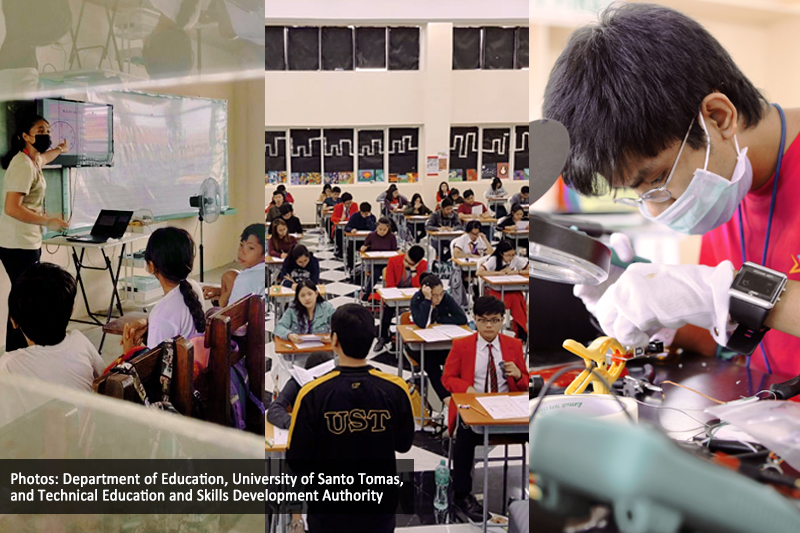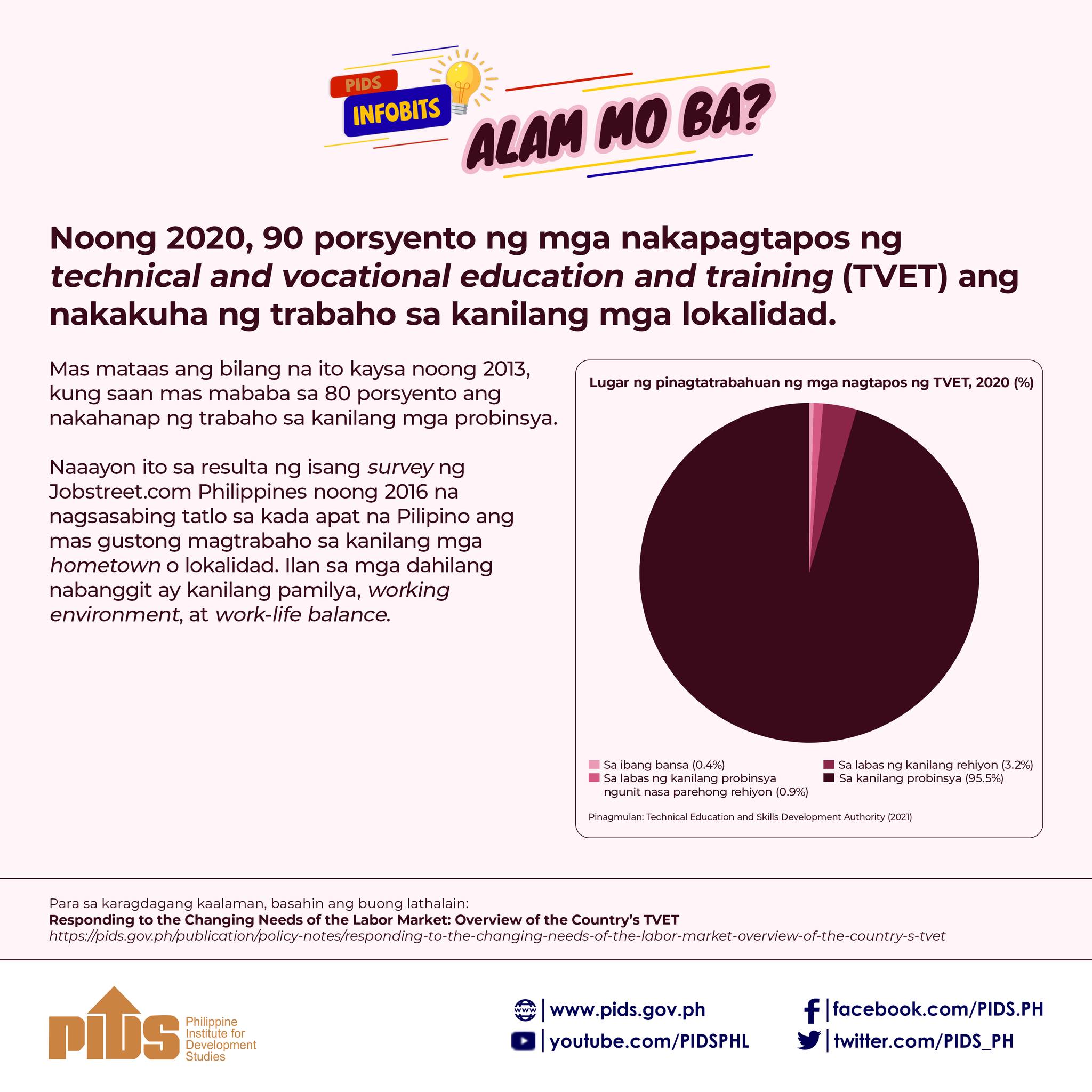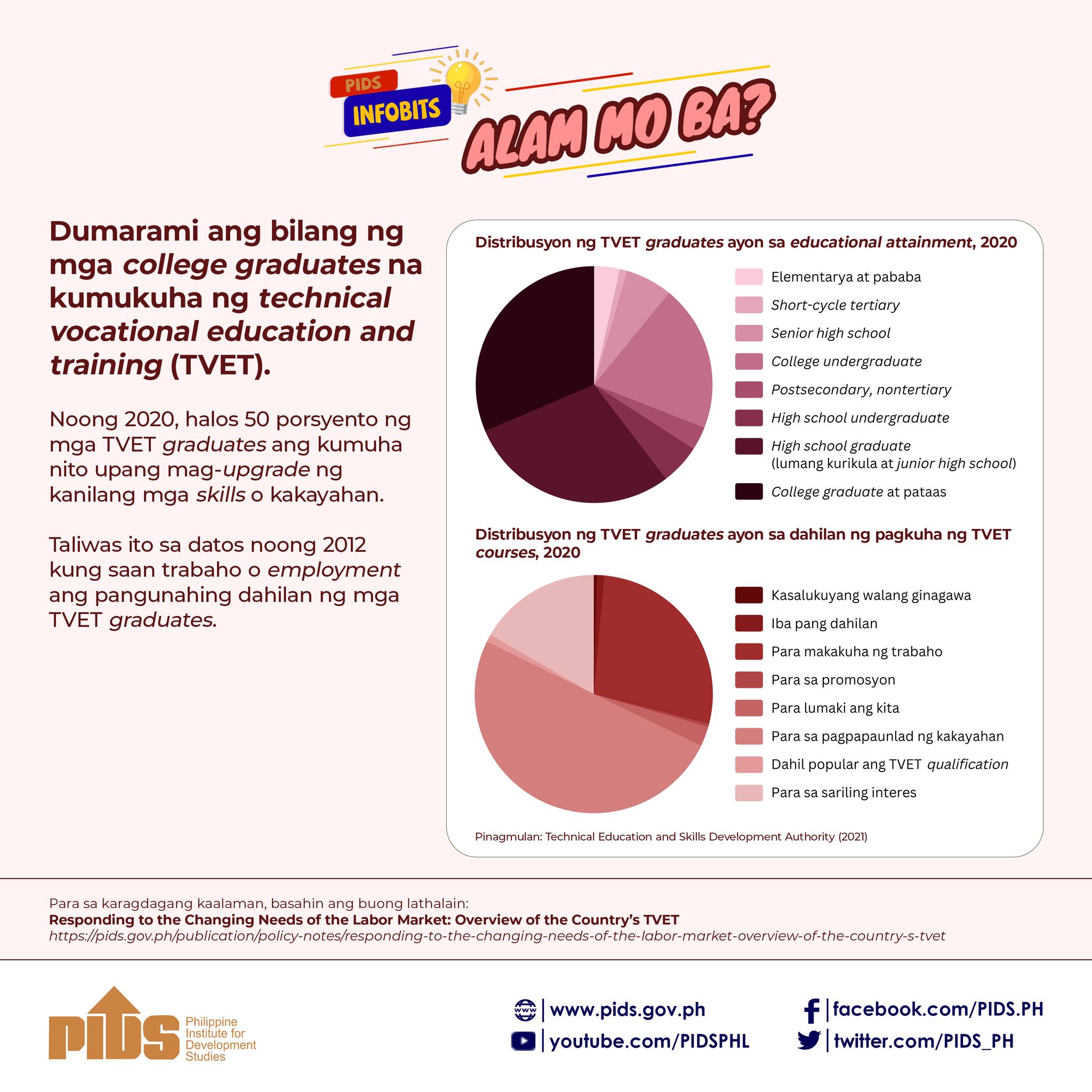Existing scholarly literature on the impact of Technical and Vocational Education and Training (TVET) on wage outcomes in the Philippines, including wage premiums and low-paid employment, has been limited and mixed. This study uses labor force and graduate tracer surveys, employing various methods such as Heckman-corrected Ordinary Least Squares, propensity score matching, and logit regression estimations to assess whether TVET graduates earn significantly higher wages than non-TVET graduates. For workers in private establishments with regular pay, this study found no significant wage difference between TVET and non-TVET graduates when controlling for other factors. However, there are notable variations across educational levels. Specifically, wage premiums are observed for individuals with secondary education or below, while wage disadvantages are found among those with some post-secondary education and above, including college education and beyond. This study also identifies heterogeneity in wage outcomes among TVET graduates, depending on the sector of their program. Building on these findings, this study offers important policy recommendations, including a shift towards developing training programs that facilitate employment in more productive occupations and sectors, along with additional suggestions for future research.
Comments on this paper are welcome within 60 days from the date of posting. Email publications@pids.gov.ph.

